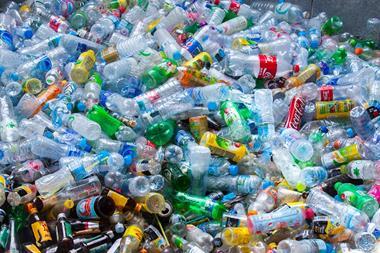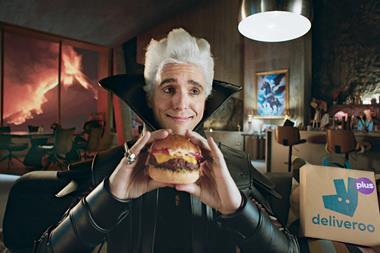The Conservatives and the Liberal Democrats made big promises about the environment prior to the election. So how has the coalition fared in practice?
Energy secretary Ed Davey accused “Tea Party Tories” of blocking the green economy at this week’s Lib Dem conference. His comments will have done nothing to assuage growing fears within the food and drink industry that the coalition’s commitment to green growth has evaporated into thin air.
What happened to David Cameron’s pre-election pledge to lead the “greenest government ever”? Has any progress been made? At the mid-point in this coalition government, the sense of frustration in the industry is near universal. “They went back on solar panel feed-in-tariffs, and now they might go back on the third runway at Heathrow,” says Robyn Kimber, impact and sustainability at Cafédirect.
“There’s a palpable feeling the environment is playing second fiddle to the economy,” adds Liz Barling, head of communication at the Food Ethics Council.
But perhaps the greatest frustration is in the lack of progress in terms of the food and drink industry itself. And all the more so because, when it comes to reducing their environmental impact, many are trailblazing (see p58). As Craig Simmons, a Defra adviser and founder of sustainability specialist Best Foot Forward puts it: “The leaders in the field are doing it off their own back. But while the industry is leading it is searching for the government to provide some guidelines, whether that be positive or negative, to improve sustainability.”
Dan Crossley, principal sustainability advisor at Forum for the Future, a not-for-profit organisation working on sustainability polices for companies including Unilever, Sainsbury’s and The Co-Operative, is even more damning. “If I was to give them a score it would probably be an E minus and that would be generous,” he says. “They haven’t shown the leadership or ambition that any of us had hoped for. Every now and again there have been glimmers of hope, but like the Green Food Project, they have been short on detail and short on actions.”
A Defra-led initiative bringing together disparate groups including the FDF, BRC, NFU, WWF and RSPB the Green Food Project was split into four sub groups, focusing on wheat, dairy, bread and curry [sic]. Solutions included, controversially, ramping up the use of GM foods.
But a source working for a major supermarket firm involved in the talks, said he was shocked at the government’s lack of interest. “We were proposing some potentially radical ideas, involving whole sections of the supply chain, but when it came to the prospect of government incentives, it was obvious there was going to be nothing on the table,” says the source.
The government’s failings were further highlighted in a series of damning Green Food Project progress reports published in July this year. The wheat sub group slammed the “extremely tight timescales and lack of resources” which limited the scope of the proposals, despite the group reaching a strong consensus on the way forward.
And Andrew Opie, director of food and sustainability at the BRC, is calling on the Prime Minister to use the cabinet reshuffle to kick-start a cross-departmental drive. “If you want to be the greenest government ever you have got to show leadership,” he says.
But the arrival of Owen Paterson at Defra, interpreted by some political pundits as a signal that the Prime Minister wants more action and less talk, is not regarded that way by Asda head of corporate affairs Julian Walker-Palin.
“We are struggling for clear leadership, and when you look at the re-shuffle, you have to question how seriously the government is treating the green agenda.”
Martin Chilcott, founder of 2 degrees network, a consultancy spearheading the supply chain sustainability agenda for companies including Tesco and Asda, believes the lack of certainty is as damaging as the lack of tax incentives. “Uncertainty is a terrible thing. No-one has any faith the coalition government will hold to any position it takes. The basic problem is they are broke. The Treasury can’t make commitments and has not realised the huge benefit of a green revolution to UK PLC.”
The situation in waste is even worse. When Defra’s Waste Review was published last year, experts felt the review failed to set a strong enough framework for industry or local authorities to abide by, allowing huge variation on areas such as household waste collections, compounded by a lack of clarity on incentives, which Defra promised to further explore.
A progress report on the plans, released in March this year, revealed there had still been only “initial explorations” of the idea , while a National Waste Prevention programme, supposedly to look at ways to incentivise businesses, will not get off the ground until at least the end of 2013.
“Uncertainty is a terrible thing. No-one has any faith the coalition will hold to any position it takes”
Martin Chilcott, founder, 2degrees network
In the meantime, there are growing fears the coalition could limit its efforts to a plastic bag tax. supermarkets in Wales reported a reduction of up to 90% in their use since a 5p charge was introduced last October, and the pressure on the coalition to follow suit is mounting, as the latest Wrap figures reveals the UK’s overall carrier bag usage figure was up more than 5% last year. But to go down this route would be missing the point, according to the sustainability chief from a leading fmcg group.
“Changes need to be far more fundamental. Carrier bags are a tiny proportion of the impact and charges won’t get us any closer to our strategic objectives for a more sustainable economy.”
The sustainability boss at one of the world’s largest food and drink companies concurs, adding that the lack of concrete plans on waste once again boils down to a lack of funding from central government.
“I feel there are actually some quite big ideas coming out of Defra but they are being stamped on by the Treasury, while other departments like Biz are not coming up with big ideas at all,” he says. “There is a fundamental misunderstanding of what companies like ours want. Ministers often assume we want light touch regulation whereas actually sometimes what we’re crying out for is a framework to work with and a level playing field.”
Mid-term report: the coalition’s green progress
The Green Food Project: 6/10
Defra spearheaded attempts to marry growth with improving the environment. Industry groups, supermarkets, suppliers and the NFU, came together last June with eco groups such as WWF, in “an unholy alliance” to find potential trade offs across the supply chain.
Verdict: A huge array of ideas, from green incentives for land management, reworked contacts for environmentally friendly suppliers and investment in technology including GM food. But members of its own steering group despair at the lack of central direction and warn ideas could take years to get off the ground - if ever.
The CRC: 4/10
The future of the Carbon Reduction Commitment Energy Efficiency Scheme (CRC), a taxation system on the biggest companies based on an emissions league table, is up in the air. Chancellor George Osborne sparked a massive row in his calamitous March budget when he announced plans to simplify reporting for the table, promising to lop £330m off red tape over the next two decades, or even drop it altogether.
Verdict: The tax levied on 2,100 companies with energy bills of more than £500,000 a year and who are responsible between them for 12% of UK carbon emissions, is aimed at saving 21 megatonnes of CO2 by 2027, but KPMG described it as “overly cumbersome, complex and carrying little additional incentive for businesses to reduce their carbon footprint”. True, it raises £1bn a year for the Treasury, though under changes made by Osborne, none of it is diverted to green spending.
Mandatory carbon reporting: 7/10
Mandatory reporting of greenhouse gas emissions for publicly listed companies starts in April next year, although as it’s aligned to companies’ financial years those businesses that follow the calendar year won’t start reporting until 2014. The scheme is due to be reviewed in 2015 with a view to being extended further down the supply chain.
Verdict: Some suppliers fought the plans, and the FDF claims most larger members already report a plethora of EU regulations on carbon. Indeed many sustainability experts point out that leading food and drink companies already align their financial reports strongly with emissions. But Tim Clapham, director of marketing at sustainability software company Planon believes “the importance of this world first for a government has yet to sink in.”
Global leadership/Rio +20: 6/10
World governments - and many of the leading companies, including Unilever - descended on Rio, in June, to discuss ways to accelerate the green economy. Deputy PM Nick Clegg led the UK delegation alongside Caroline Spelman, by then in her death throes at Defra.
Verdict: Clegg declared the mission a success, with agreements at the summit including plans to establish global Sustainable Development Goals (SDGs), to ramp up sustainability reporting and to recognise the value of the green economy. But critics point out that David Cameron’s absence reflects a change of attitude.
Waste/recycling: 1/10
With household recycling up from 11% in 2000/1 to 42.9% in 2011, according to the latest figures from Wrap, progress is certainly positive. However, UK households still waste a quarter of all the food they buy, and Cameron’s government has been accused of lagging behind its neighbours on waste prevention, recycling goals and co-ordination of local authorities.
Verdict: It’s hard to credit the coalition with the big breakthroughs as organisations like Wrap and targets like Courtauld were inherited. With easy wins preferred, plastic bags may become the big issue again, but won’t bring the big gains either to recycling of plastics, or to the UK plc.



















No comments yet